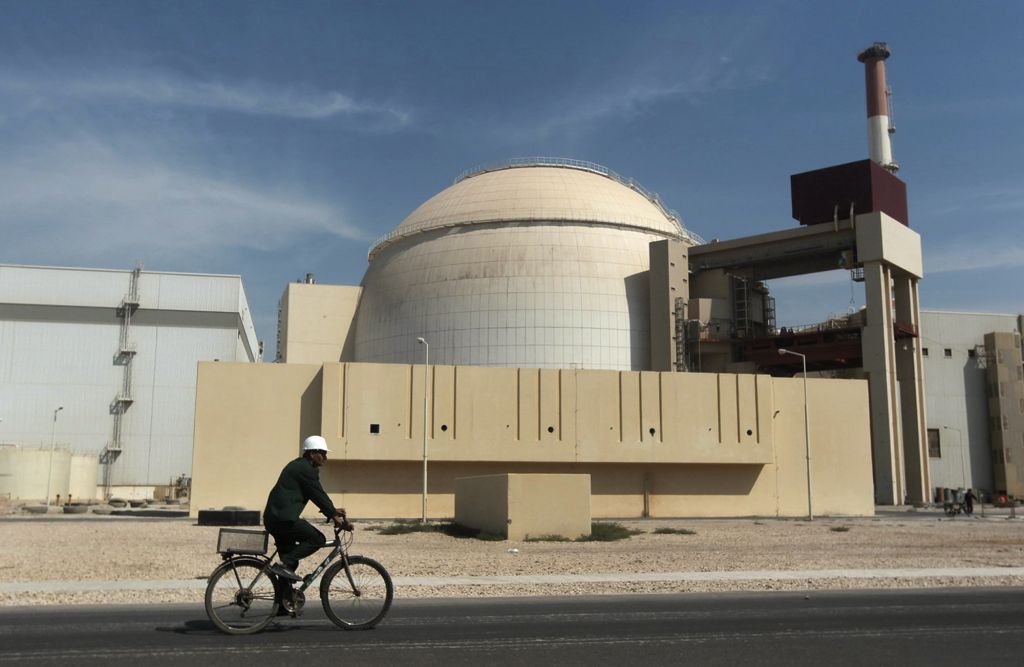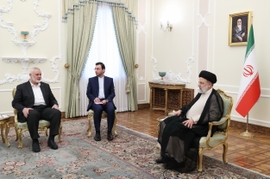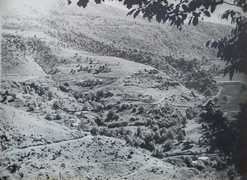Iran’s President Hassan Rouhani has said Iran will be reducing its commitments to the Joint Comprehensive Plan of Action (JCPOA), better known as the nuclear deal, which was brokered under the Obama administration in 2015.
"In a simpler language, we felt that there was a need for surgery and the one-year-old painkillers were not enough; today's action is a surgical procedure to save the JCPOA, not to end it, and we believe that if our nation and our system work integrated in this direction, the world receives the message of the nation of Iran well,” Rouhani said at a cabinet meeting, one year to the day when U.S. President Donald Trump had announced that he would be pulling the U.S. out from the JCPOA.
The JCPOA was agreed to and signed by the five permanent members of the United Nations Security Council – China, France, Russia, the United Kingdom and the United States – plus Germany and Iran.
Under the agreement, which went into effect in January of 2016, Iran agreed to eliminate its stockpile of medium-enriched uranium, cut its stockpile of low-enriched uranium by 98 percent, and reduce by about two-thirds the number of its gas centrifuges for 13 years.
The deal allows Iran to enrich uranium for 15 years up to just 3.67 percent, while prohibiting it from building any new heavy-water facilities for the same period of time. In addition, uranium enrichment activities were to be limited to a single facility that uses first-generation centrifuges for 10 years.
“Today, we stop selling our enriched uranium and heavy water deposits; this decision is for 60 days,” Rouhani announced. “We will begin our two next steps regarding the level of enrichment and Arak Heavy Water Reactor if we don’t get the desired results,” he added.
“If the parties to the JCPOA come to the negotiation table and meet our main interests, especially in oil and banking fields, we will return to the previous point.”
Upon his arrival in Moscow on May 8, Iran’s Foreign Minister Mohammad Javad Zarif told reporters that Iran's future actions will be completely in the context of the JCPOA, and Tehran will not pull out of the nuclear deal.
He went on to say that unfortunately the European Union and other members of the international community were not able to stand against American pressure, and as a result Iran has decided not to implement some of what he called voluntarily commitments in the deal.
Following Washington's decision last week to repeal two waivers on nuclear cooperation with Iran, Iran’s Supreme National Security Council officially announced that Iran will stop some of its required measures under the JCPOA beginning on May 8. The government gave a 60-day deadline for other countries to protect Iran's interests against U.S. sanctions or it threatened not to implement its two commitments. The decision was officially relayed in separate letters to the ambassadors of five countries still party to the JCPOA.
Meanwhile, on May 8 the U.S. warned European banks, investors and businesses against engaging with the so-called special purpose vehicle called INSTEX, a European-backed system to facilitate non-dollar trade with Iran and circumvent American sanctions.
“Today, Iran's message to Europeans was clear,” Iranian political expert Farhad Daneshvar told Caspian News. “If you do not do enough to meet your commitments under nuclear deal, Iran will resume its nuclear program without any restrictions. This includes uranium enrichment and the installation of the state-of-the-art centrifuge devices.”







 Azerbaijan officially unveiled the logo for the upcoming 29th session of the Conference of the Parties to the United Nations Framework Convention o...
Azerbaijan officially unveiled the logo for the upcoming 29th session of the Conference of the Parties to the United Nations Framework Convention o...
 Iran's senior military leaders described the drone and missile attack on Israel on April 14 night as “successful".
Iran's senior military leaders described the drone and missile attack on Israel on April 14 night as “successful".
 The Islamic holy month of fasting, Ramadan comes to an end this week with the celebration of a joyous festival called Eid (meaning “festival” in Ar...
The Islamic holy month of fasting, Ramadan comes to an end this week with the celebration of a joyous festival called Eid (meaning “festival” in Ar...
 Iranian Foreign Ministry Spokesperson Nasser Kanani warned of “geopolitical rivalries”, commenting on a recent high-level meeting between Armenia, ...
Iranian Foreign Ministry Spokesperson Nasser Kanani warned of “geopolitical rivalries”, commenting on a recent high-level meeting between Armenia, ...
 Iran's President Ebrahim Raisi extended condolences to the Chairman of the Political Bureau of the Palestinian Hamas group, Ismail Haniyeh, followi...
Iran's President Ebrahim Raisi extended condolences to the Chairman of the Political Bureau of the Palestinian Hamas group, Ismail Haniyeh, followi...
 The number of evacuees from flooded areas in Kazakhstan has reached 97,852 people, including about 32,856 children since March 27.
The number of evacuees from flooded areas in Kazakhstan has reached 97,852 people, including about 32,856 children since March 27.



